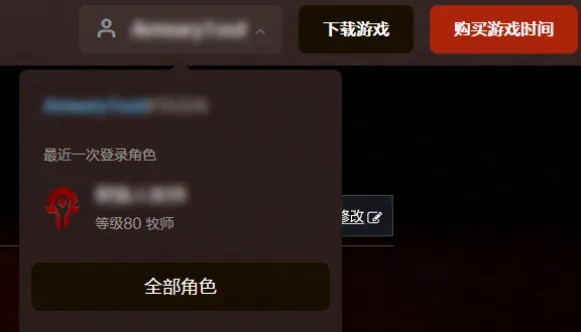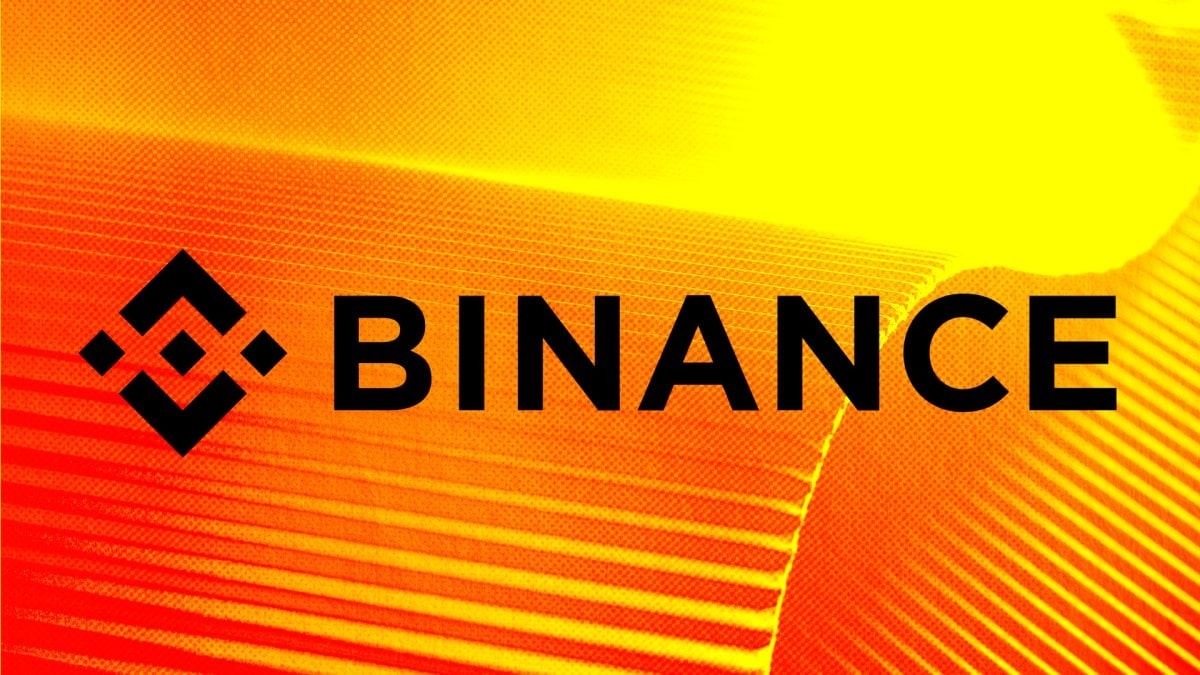英文部分
时间:2007-06-17 来源:liufirst
In addition, there is a minor issue that we will mention here because
this release is so close on the heels of the Linux 2.2 release: there
is a symlink in /usr/include that points at the linux asm headers. It
appears to be not uncommon that this link won't be updated correctly,
in which case you'll get the following error when you try to build:
lpf.c: In function `if_register_receive':
lpf.c:152: `SO_ATTACH_FILTER' undeclared (first use this function)
lpf.c:152: (Each undeclared identifier is reported only once
lpf.c:152: for each function it appears in.)
The line numbers may be different, of course. If you see this
header, your linux asm header link is probably bad, and you should
make sure it's pointing to correct linux source directory.
LINUX: PROTOCOL NOT CONFIGURED
One additional Linux 2.1/2.2 issue: if you get the following message,
it's because your kernel doesn't have the linux packetfilter or raw
packet socket configured:
Make sure CONFIG_PACKET (Packet socket) and CONFIG_FILTER (Socket
Filtering) are enabled in your kernel configuration
If this happens, you need to configure your Linux kernel to support
Socket Filtering and the Packet socket. You can do this by typing
``make config'', ``make menuconfig'' or ``make xconfig'', and then
enabling the Packet socket and Socket Filtering options that you'll
see displayed on the menu or in the questionnaire. You can also edit
your linux kernel .config file directly: set CONFIG_FILTER=y and
CONFIG_PACKET=y. If you do this, make sure you run ``make oldconfig''
afterwards, so that the changes you've made are propogated to the
kernel header files. After you've reconfigured, you need to type
``make'' to build a new Linux kernel, and then install it in the
appropriate place (probably /linux). Make sure to save a copy of your
old /linux.
If the preceding paragraph made no sense to you, ask your Linux
vendor/guru for help - please don't ask us.
If you set CONFIG_PACKET=m or CONFIG_FILTER=m, then you must tell the
kernel module loader to load the appropriate modules. If this doesn't
make sense to you, don't use CONFIG_whatever=m - use CONFIG_whatever=y.
Don't ask for help with this on the DHCP mailing list - it's a Linux
kernel issue. This is probably not a problem with the most recent
Linux 2.2.x kernels.
LINUX: BROADCAST
If you are running a recent version of Linux, this won't be a problem,
but on older versions of Linux (kernel versions prior to 2.2), there
is a potential problem with the broadcast address being sent
incorrectly.
In order for dhcpd to work correctly with picky DHCP clients (e.g.,
Windows 95), it must be able to send packets with an IP destination
address of 255.255.255.255. Unfortunately, Linux changes an IP
destination of 255.255.255.255 into the local subnet broadcast address
(here, that's 192.5.5.223).
This isn't generally a problem on Linux 2.2 and later kernels, since
we completely bypass the Linux IP stack, but on old versions of Linux
2.1 and all versions of Linux prior to 2.1, it is a problem - pickier
DHCP clients connected to the same network as the ISC DHCP server or
ISC relay agent will not see messages from the DHCP server. It *is*
possible to run into trouble with this on Linux 2.2 and later if you
are running a verson of the DHCP server that was compiled on a Linux
2.0 system, though.
It is possible to work around this problem on some versions of Linux
by creating a host route from your network interface address to
255.255.255.255. The command you need to use to do this on Linux
varies from version to version. The easiest version is:
route add -host 255.255.255.255 dev eth0
On some older Linux systems, you will get an error if you try to do
this. On those systems, try adding the following entry to your
/etc/hosts file:
255.255.255.255 all-ones
Then, try:
route add -host all-ones dev eth0
Another route that has worked for some users is:
route add -net 255.255.255.0 dev eth0
If you are not using eth0 as your network interface, you should
specify the network interface you *are* using in your route command.
LINUX: IP BOOTP AGENT
Some versions of the Linux 2.1 kernel apparently prevent dhcpd from
working unless you enable it by doing the following:
echo 1 >/proc/sys/net/ipv4/ip_bootp_agent
LINUX: MULTIPLE INTERFACES
Very old versions of the Linux kernel do not provide a networking API
that allows dhcpd to operate correctly if the system has more than one
broadcast network interface. However, Linux 2.0 kernels with version
numbers greater than or equal to 2.0.31 add an API feature: the
SO_BINDTODEVICE socket option. If SO_BINDTODEVICE is present, it is
possible for dhcpd to operate on Linux with more than one network
interface. In order to take advantage of this, you must be running a
2.0.31 or greater kernel, and you must have 2.0.31 or later system
headers installed *before* you build the DHCP Distribution.
We have heard reports that you must still add routes to 255.255.255.255
in order for the all-ones broadcast to work, even on 2.0.31 kernels.
In fact, you now need to add a route for each interface. Hopefully
the Linux kernel gurus will get this straight eventually.
Linux 2.1 and later kernels do not use SO_BINDTODEVICE or require the
broadcast address hack, but do support multiple interfaces, using the
Linux Packet Filter.
SCO
SCO has the same problem as Linux (described earlier). The thing is,
SCO *really* doesn't want to let you add a host route to the all-ones
broadcast address.
On more recent versions of SCO, you can do this:
ifconfig net0 xxx.xxx.xxx.xxx netmask 0xNNNNNNNN broadcast 255.255.255.255
If this doesn't work, you can also try the following strange hack:
ifconfig net0 alias 10.1.1.1 netmask 8.0.0.0
Apparently this works because of an interaction between SCO's support
for network classes and the weird netmask. The 10.* network is just a
dummy that can generally be assumed to be safe. Don't ask why this
works. Just try it. If it works for you, great. SCO has added
support for doing DHCP in a more sensible way, but I have not had the
time or cause to implement them. If you are interested in this, and
are able to hack your way out of a wet paper back without assistance,
we'd appreciate it if you'd give it a try, but don't expect too much
support from us (sorry!).
HP-UX
HP-UX has the same problem with the all-ones broadcast address that
SCO and Linux have. One user reported that adding the following to
/etc/rc.config.d/netconf helped (you may have to modify this to suit
your local configuration):
INTERFACE_NAME[0]=lan0
IP_ADDRESS[0]=1.1.1.1
SUBNET_MASK[0]=255.255.255.0
BROADCAST_ADDRESS[0]="255.255.255.255"
LANCONFIG_ARGS[0]="ether"
DHCP_ENABLE[0]=0
ULTRIX
Now that we have Ultrix packet filter support, the DHCP Distribution
on Ultrix should be pretty trouble-free. However, one thing you do
need to be aware of is that it now requires that the pfilt device be
configured into your kernel and present in /dev. If you type ``man
packetfilter'', you will get some information on how to configure your
kernel for the packet filter (if it isn't already) and how to make an
entry for it in /dev.
FreeBSD
Versions of FreeBSD prior to 2.2 have a bug in BPF support in that the
ethernet driver swaps the ethertype field in the ethernet header
downstream from BPF, which corrupts the output packet. If you are
running a version of FreeBSD prior to 2.2, and you find that dhcpd
can't communicate with its clients, you should #define BROKEN_FREEBSD_BPF
in site.h and recompile.
Modern versions of FreeBSD include the ISC DHCP 3.0 client as part of
the base system, and the full distribution (for the DHCP server and
relay agent) is available from the Ports Collection in
/usr/ports/net/isc-dhcp3, or as a package on FreeBSD installation
CDROMs.
NeXTSTEP
The NeXTSTEP support uses the NeXTSTEP Berkeley Packet Filter
extension, which is not included in the base NextStep system. You
must install this extension in order to get dhcpd or dhclient to work.
SOLARIS
One problem which has been observed and is not fixed in this
patchlevel has to do with using DLPI on Solaris machines. The symptom
of this problem is that the DHCP server never receives any requests.
This has been observed with Solaris 2.6 and Solaris 7 on Intel x86
systems, although it may occur with other systems as well. If you
encounter this symptom, and you are running the DHCP server on a
machine with a single broadcast network interface, you may wish to
edit the includes/site.h file and uncomment the #define USE_SOCKETS
line. Then type ``make clean; make''.
The DHCP client on Solaris will only work with DLPI. If you run it
and it just keeps saying it's sending DHCPREQUEST packets, but never
gets a response, you may be having DLPI trouble as described above.
If so, we have no solution to offer at this time. Also, because
Solaris requires you to "plumb" an interface before it can be detected
by the DHCP client, you must either specify the name(s) of the
interface(s) you want to configure on the command line, or must plumb
the interfaces prior to invoking the DHCP client. This can be done
with ``ifconfig iface plumb'', where iface is the name of the
interface (e.g., ``ifconfig hme0 plumb'').
It should be noted that Solaris versions from 2.6 onward include a
DHCP client that you can run with ``/sbin/ifconfig iface dhcp start''
rather than using the ISC DHCP client. The feature set of the Solaris
client is different (not necessarily better or worse) than that of the
ISC client, but in most cases it will be a lot easier for you to just
use that. Please do not ask for help in using the Solaris DHCP client
on Internet Systems Consortium mailing lists - that's why you're
paying Sun the big bucks. If you're having a problem with the
Solaris client interoperating with the ISC dhcp server, that's another
matter, but please check with Sun first.
SUPPORT
The Internet Systems Consortium DHCP server is not a commercial
product, and is not supported by the ISC. However, it has attracted a
fairly sizable following on the Internet, which means that there are a
lot of knowledgable users who may be able to help you if you get
stuck. These people generally read the [email protected] mailing
list.
If you are going to use dhcpd, you should probably subscribe to the
dhcp-server and dhcp-announce mailing lists. If you will be using
dhclient, you should subscribe to the dhcp-client mailing list.
If you need help, you should ask on the dhcp-server or dhcp-client
mailing list - whichever is appropriate to your application. Support
requests for the ISC DHCP client should go to [email protected].
Support requests for the DHCP server should go to [email protected].
If you are having trouble with a combination of the client and server,
send the request to [email protected]. Please do not cross-post to
both lists under any circumstances.
WHERE TO REPORT BUGS: If you want the act of sending in a bug report
to result in you getting help in the form of a fixed piece of
software, you are asking for help. Your bug report is helpful to us,
but fundamentally you are making a support request, so please use the
addresses described in the previous paragraphs. If you are _sure_ that
your problem is a bug, and not user error, or if your bug report
includes a patch, you can send it to [email protected] without
subscribing. This mailing list goes into a bug tracking system, so
you don't need to check periodically to see if we still remember the
bug - if you haven't been notified that the bug has been closed, we
still consider it a bug, and still have it in the system.
PLEASE DO NOT REPORT BUGS IN OLD SOFTWARE RELEASES! Fetch the latest
release and see if the bug is still in that version of the software,
and if it's not, _then_ report it. It's okay to report bugs in the
latest patchlevel of a major version that's not the most recent major
version, though - for example, if you're running 3.0pl2, you don't have
to upgrade to a 3.0.1rc (release candidate) before you can report bugs.
PLEASE DO NOT REPORT BUGS IF YOU ARE RUNNING A VERSION OF THE ISC
DHCP DISTRIBUTION THAT YOU DIDN'T GET FROM THE ISC! Free operating
system distributions are notorious for including outdated versions of
software, and also versions of software that were not compiled on your
particular version of the operating system. These versions
frequently do not work. Getting a source distribution from the ISC
and installing it frequently *does* work. Please try this *before*
asking for help.
PLEASE READ THIS README FILE CAREFULLY BEFORE REPORTING BUGS,
PARTICULARLY THE SECTION BELOW ON WHAT TO INCLUDE IN A BUG REPORT OR
HELP REQUEST.
PLEASE DO NOT SEND REQUESTS FOR SUPPORT DIRECTLY TO THE ENGINEERS WHO
WORK ON THE ISC DHCP DISTRIBUTION! *PARTICULARLY*, DO NOT SEND MAIL
TO THE ENGINEERS BECAUSE YOU AREN'T SURE TO WHOM YOU SHOULD SEND MAIL
- if you aren't sure, *ask* on the [email protected] or
[email protected] mailing list.
The number of people using the DHCP Distribution is sufficiently large
that if we take interrupts every time any one of those people runs
into trouble, we will never get any more coding done. If you send a
support request directly to any ISC or Nominum engineer, we will
forward it to the mailing list, or possibly ignore it, depending on
how much stress we are under at the time.
Please do not Cc: us on mail you send to these lists - we read both
mailing lists, so this just means we get two copies!
If your question can only be answered by one of the engineers, send it
to the appropriate public mailing list anyway - we will answer it
there. When we have time.
Please do not think "Oh, I don't want to bother the whole mailing list
with this question." If you are too embarrassed to ask publically,
get a support contract.
If you are concerned about bothering everybody on the list, that's
great, but that's what the list is there for. When you send mail to
one of the engineers, you are taking resources away from everybody on
the mailing list *anyway* - they just don't know it.
We're not writing this because we don't respect you - we really do
want to help you, and we appreciate your bug reports and comments.
But please use the mechanisms we have in place to provide you with
help, because otherwise you are almost certainly depriving someone
else of our help.
PLEASE DO NOT CALL US ON THE PHONE FOR HELP! Answering the phone
takes a lot more of our time and attention than answering email. If
you do call us on the phone, we will tell you to send email to the
mailing list or buy a support contract, so please don't waste your
time or ours. If you have a support contract, please use the support
channel mentioned in the support contract - otherwise you probably
won't get timely support unless you happen to ask an interesting
question and we happen to have some time to kill, because we can't
tell you're a support customer if you send mail to the public mailing
lists.
HOW TO REPORT BUGS OR REQUEST HELP
When you report bugs or ask for help, please provide us complete
information. A list of information we need follows. Please read it
carefully, and put all the information you can into your initial bug
report, so that we don't have to ask you any questions in order to
figure out your problem. If you need handholding support, please
consider contacting a commercial provider of the ISC DHCP
Distribution.
1. The specific operating system name and version of the
machine on which the DHCP server or client is running.
2. The specific operating system name and version of the
machine on which the client is running, if you are having
trouble getting a client working with the server.
3. If you're running Linux, the version number we care about is
the kernel version and maybe the library version, not the
distribution version - e.g., while we don't mind knowing
that you're running Redhat version mumble.foo, we must know
what kernel version you're running, and it helps if you can
tell us what version of the C library you're running,
although if you don't know that off the top of your head it
may be hard for you to figure it out, so don't go crazy
trying.
4. The specific version of the DHCP distribution you're
running, for example "2.0b1pl19", not "2.0".
5. Please explain the problem carefully, thinking through what
you're saying to ensure that you don't assume we know
something about your situation that we don't know.
6. Include your dhcpd.conf and dhcpd.leases file if they're not
huge (if they are huge, we may need them anyway, but don't
send them until you're asked). Huge means more than 100
kilobytes each.
7. Include a log of your server or client running until it
encounters the problem - for example, if you are having
trouble getting some client to get an address, restart the
server with the -d flag and then restart the client, and
send us what the server prints. Likewise, with the client,
include the output of the client as it fails to get an
address or otherwise does the wrong thing. Do not leave
out parts of the output that you think aren't interesting.
8. If the client or server is dumping core, please run the
debugger and get a stack trace, and include that in your
bug report. For example, if your debugger is gdb, do the
following:
gdb dhcpd dhcpd.core
(gdb) where
[...]
(gdb) quit
This assumes that it's the dhcp server you're debugging, and
that the core file is in dhcpd.core.
9. If you know that the problem is an actual bug, and you can
reproduce the bug, you can skip steps 6 through 8 and instead
capture a trace file using the -tf flag (see the man page for
details). If you do this, and there is anything in your
dhcp configuration that you are not willing to make public,
please send the trace file to [email protected] and NOT to
[email protected], because the tracefile contains your entire
dhcp configuration.
PLEASE DO NOT send queries about non-isc clients to the dhcp-client
mailing list. If you're asking about them on an ISC mailing list,
it's probably because you're using the ISC DHCP server, so ask there.
If you are having problems with a client whose executable is called
dhcpcd, this is _not_ the ISC DHCP client, and we probably can't help
you with it.
Please see http://www.isc.org/sw/dhcp/ for details on how to subscribe
to the ISC DHCP mailing lists.










